Sample Letters to Homeowners
-
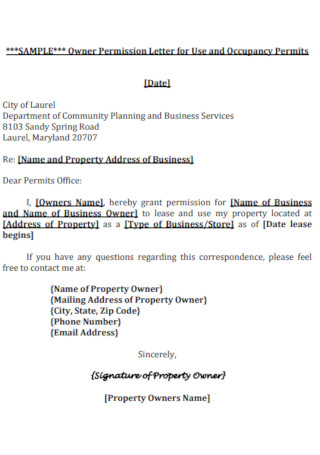
Homeowner Permission Letter
download now -
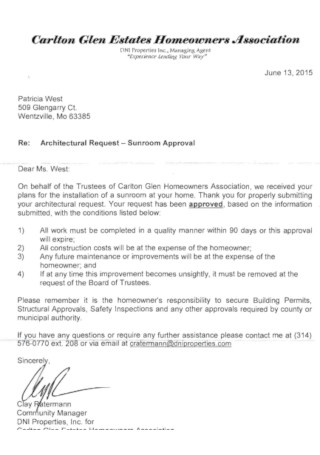
Sample Estates Homeowners Letter
download now -
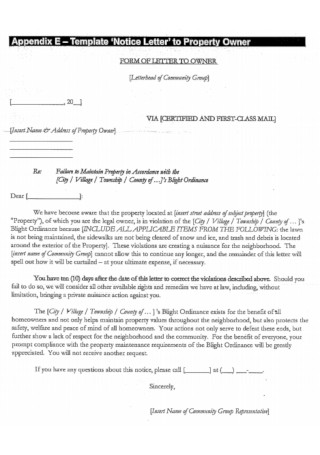
Letters to Property Owner
download now -
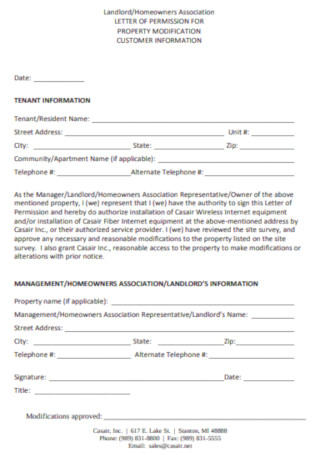
Homeowners Association Letter
download now -
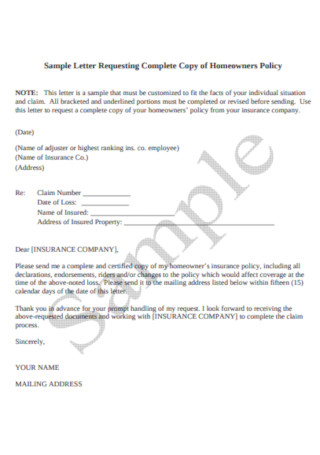
Sample Homeowners Policy Letter
download now -
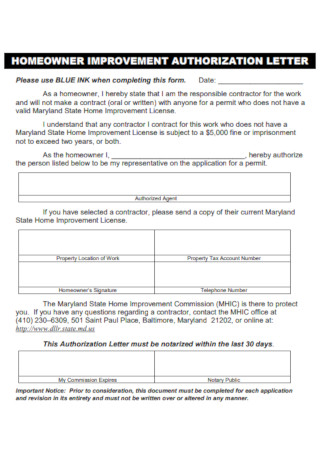
Homeowner Improvement Authorization Letter
download now -
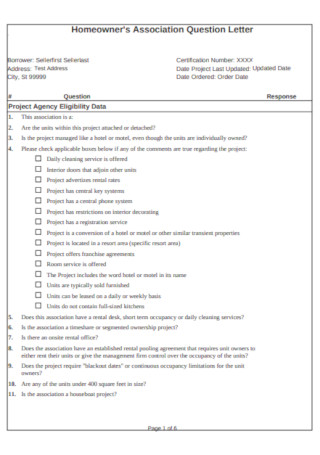
Homeowner’s Association Question Letter
download now -
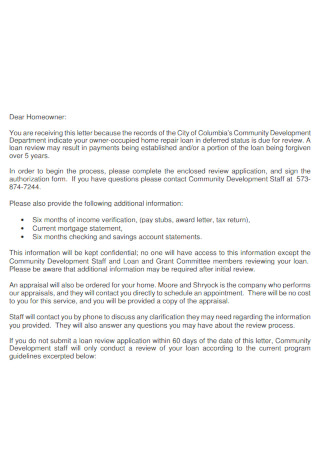
Simple Homeowner Letter
download now -
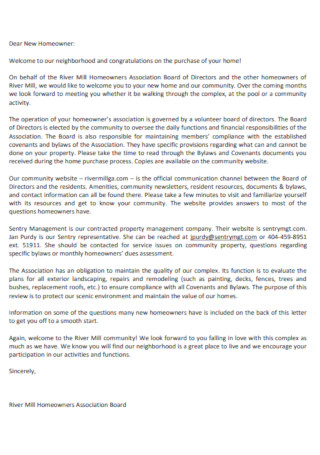
Sample New Homeowner letter
download now -
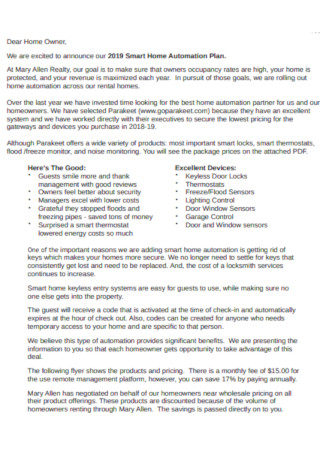
Basic Homeowner Letter
download now -
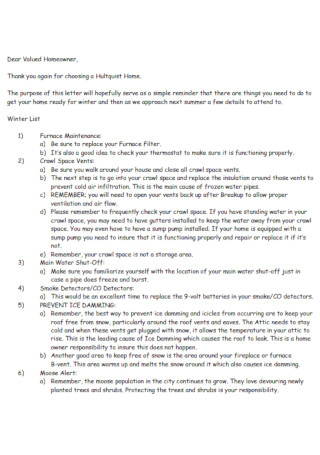
Standard Homeowner Letter
download now -
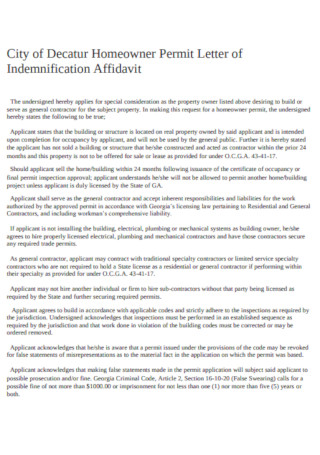
Homeowner Permit Letter
download now -
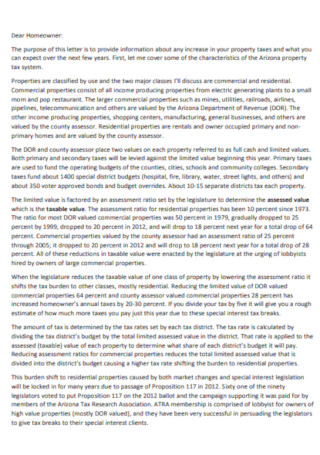
Formal Homeowner Letter
download now -
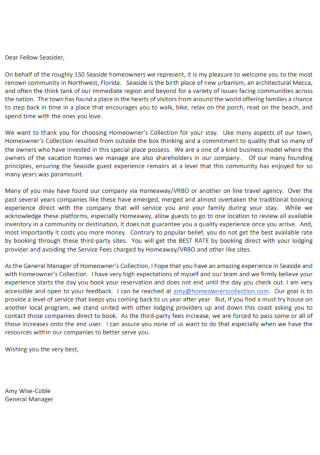
Home Business Owner Letter
download now -

Builder Homeowner Letter
download now -
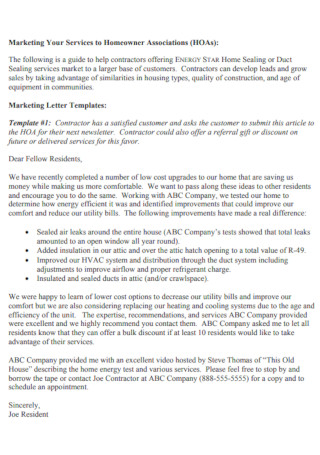
Homeowner Business Letter
download now -
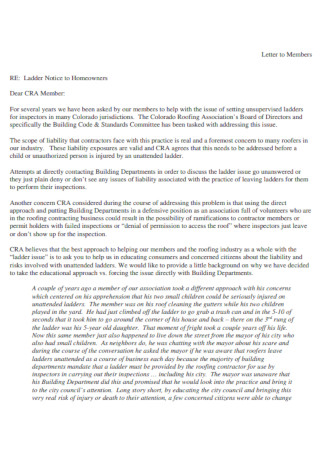
Ladder Notice to Homeowners Letter
download now -
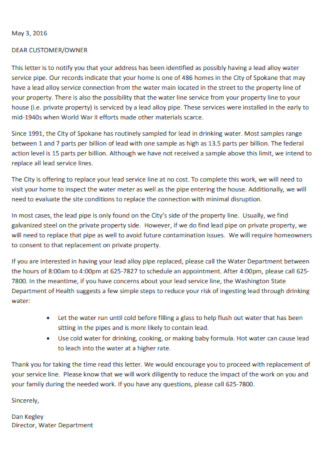
Owner Customer Letter
download now -
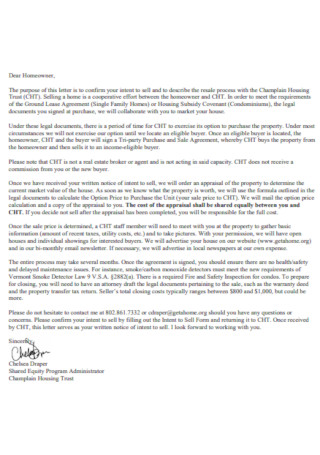
Housing Owner Letter
download now -
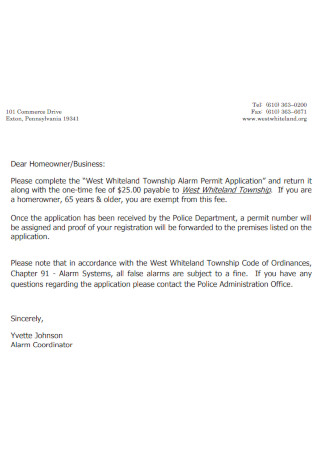
Sample Homeowner Business Letter
download now -
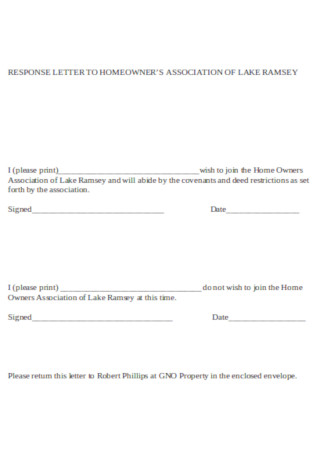
Homeowners Response Letter
download now
What Is a Letter to Homeowners?
A letter to the homeowner serves as a cover letter of sorts for your bid on a residence. In competitive housing markets, personal touches such as these can persuade the vendor that you are the ideal buyer. Remember that these letters are best utilized as supplements instead of replacements for making the best possible offer. Even the most eloquent buyer letter will likely only be effective if your financial bid exceeds the asking price.
Benefits of Homeownership
While home prices may rise, it is essential to remember that homes in this area are highly affordable compared to many other regions of the country. As rents skyrocket, an increasing number of people are opting to purchase. Risks and obstacles are associated with buying a property, such as the possibility of depreciation, being tied to a single location, and saving enough money for an installment payment agreement. Nonetheless, it is essential to consider that home ownership has both financial and social advantages, including:
Developing a solid credit history: As long as you always make your monthly loan payments on time, you demonstrate to other lenders that you are a dependable borrower with low default risk. This helps build your credit, which can be helpful if you need additional loans for a car purchase agreement, home renovation contract, or other significant expense receipts.
Tips for Writing a Letter to the Seller of a Home
Writing a letter to a seller is one strategy homebuyers use to stand out and compete in a bidding conflict or with all-cash buyers. People who require financing — and most do — and those with lower down payments frequently have difficulty competing with cash buyers who can entice sellers with clean offers and quick closings. Even cash-only purchasers may find themselves in competition with other cash-only buyers. This is where a homebuyer’s letter is valid. Your objective is to persuade the vendor that you and your family would enjoy living in their house because it’s so fantastic. Here are seven suggestions to assist you in writing a letter that will be well-received and may persuade the seller that the house should be yours.
1. Establish a Connection
Look for something you and the consumer have in common and use that to your advantage. The objective is for the seller to relate to you and your family. Perhaps you work in the same field or attended the same school, or you noticed several bird feeders in the yard, just as you have in yours. As your real estate agent offers you the property, please pay close attention to the details so that you can identify a potential connection and expand upon it in your letter.
2. Keep It Short
Although you may be tempted to share your entire life story to make your point, it is generally not a good idea. No one will want to sift through pages of your personal history unless you are a gifted storyteller. Instead, strive to limit the letter to one page, even if this requires extensive editing. Focus on two or three compelling reasons why you are the ideal candidate for the property and omit the fluff.
3. Stay Positive
Vendors may need to be more comfortable if they are informed of all the past offers they have rejected. One might feel sorry for you but will ponder why you’ve had difficulty purchasing a home. Remember, nobody appreciates drama. If you appear frantic for any reason, the seller will feel uneasy, so it is essential to maintain a positive attitude. You want the recipient of your letter to feel elated after reading it.
4. Leave Out Your Remodeling Plans
People naturally guard their homes, so when writing your letter, consider that. Your remodeling proposal will likely alter (or eliminate) something the seller holds dear, like the bathtub the kids sprinkled in, the breakfast nook where someone worked late to earn a college degree, or the tree where the cherished family dog is interred. Keep your goals to yourself and let the seller envision you residing in the house and enjoying it as they did.
5. Finish Strong
Finish with a brief paragraph reiterating one or two of your letter’s main points (for example, why you adore the house or are the best buyer). Also, remember to express your gratitude for the seller’s consideration, time, and the chance to submit an offer. Instead of using “Best regards,” which could be too formal, sign with something like “Thank you so much for your time.”
How to Be a Better Homeowner
If you’re like most homeowners, your property is your most significant financial investment, so it makes sense to protect its value in any way possible. You can quickly go from being an excellent homeowner to a great homeowner with the proper care and maintenance and some proactive planning reports. If you are still intrigued, the steps below can be followed.
1. Plan Wisely
Being a successful homeowner requires more than just on-time mortgage payments. It involves being prepared for the unavoidable surprises with home ownership and taking the necessary precautions to ensure your home and family are safe and secure. If you’re fed up with living paycheck to paycheck slip and never having enough money for the things you want, such as that beautiful living room set you saw at the furniture store, it’s time to evaluate your spending habits. Check out some interactive budget worksheets to determine where you’re overspending and where you can save.
2. Boost Your Home’s Curb Appeal
Whether or not you intend to sell your home soon, you can increase its value by making it as street-appealing as feasible. Appropriate enhancements could include repainting the front door, installing a sprinkler system to keep the lawn looking its best, or trimming overgrown trees and bushes to give the yard a tidy appearance.
3. Check for Termites
The sooner you identify these subterranean pests, the sooner you can contact an exterminator to eliminate them. Look for telltale indicators, such as mud tubes along interior or exterior foundation walls, small piles of tiny droppings, pinholes in drywall, and hollow-sounding wood. Also, if you’ve been holding on to the last boxes of incandescent light bulbs, toss them out and replace all of the old bulbs in your ceiling lighting and lamps with more energy-efficient models.
4. Safety First
Although you probably already know that you should switch the batteries in your smoke detectors twice a year, there may be further precautions you can take to safeguard your home and your family. In addition, ignoring minor issues might lead to nightmare home repair situations. For instance, if a little water line leak is not fixed, it may cause structural harm and mold growth. Make it a practice to take care of issues as soon as you discover them, and you’ll save time and money in the long term.
FAQs
What is a home letter?
A house offer letter is written to the home seller that describes who you are, why you want to purchase their home and how you plan to use it, your ability to complete the transaction, and why they should choose your bid over other offers.
Why is it important to have a home?
A solid residence provides security. Children are less likely to be abused physically or sexually. They are less likely to be subjected to juvenile labor, early marriage, or forced recruitment by armed groups. A home facilitates access for displaced individuals to humanitarian assistance.
What is a buyer proposal?
A proposal is, at its essence, a persuasive document that explains to buyers why they should purchase and why they should purchase from you.
A letter from the buyer to the vendor can help your bid stand out in a competitive housing market. A buyer’s letter should include an introduction, a description of the offer, and an expression of appreciation to the proprietors. If executed correctly and in the appropriate context, it could influence the seller in your favor.
